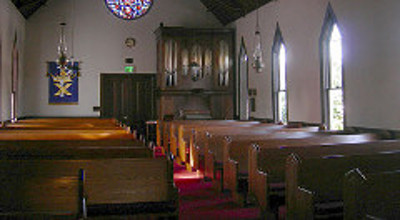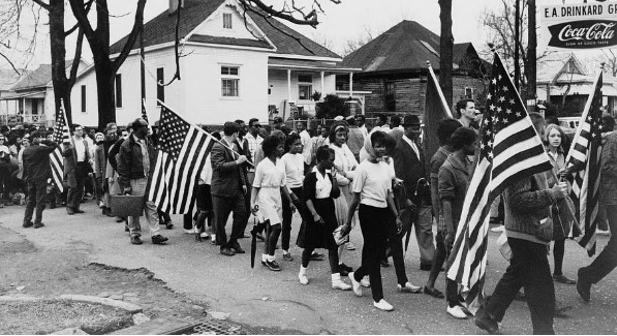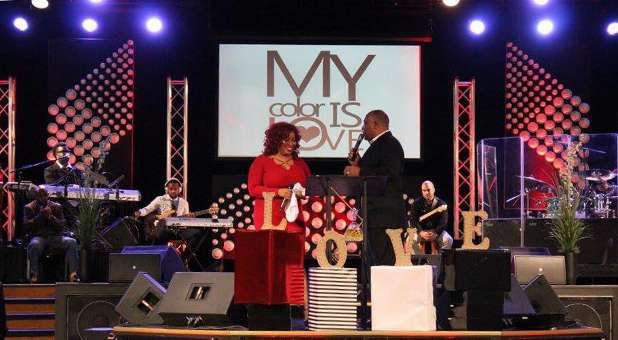Toxic environments are not limited to chemical plants, corporate climates or political back rooms. The church can be toxic as well.
A church environment becomes toxic when the system is closed, power is abused, consent to sin is mistaken for loyalty and telling the truth is forbidden. It happens when a needy, unhealthy leader with weak boundaries and no accountability becomes a vessel for the power of God.
Toxicity, when experienced for long enough periods and at high enough levels, is lethal. And the modern church is killing far too many who come to it for sanctuary. In a word, church in the 21st century is often an unsafe place to be.
Historically, a sanctuary or “sacred space” was a place set apart from the natural world. Special purity was required of those who entered the sanctuary, and taboos against profaning it were enforced. This was true of both the tabernacle of the ancient Hebrews and the temple in Jerusalem.
The church in the black community has had a rich history of sanctuary.
Richard Allen and Absalom Jones withdrew from St. George’s Methodist Episcopal church in Philadelphia when they were forbidden to pray at the altar with white members. In 1793 they founded the African Methodist Episcopal Church as a sanctuary from theological indignity and racial exclusion.
The first African Baptist congregations in the 1700s and 1800s sheltered slaves and free blacks from the ignorance forced on them by a lack of education. It taught them the “illegal” skills of reading and writing and the revolutionary act of coming to know the God of the Bible, who would lead them to a promised land called freedom.
Black Pentecostal groups such as the Church of God in Christ became a refuge for downtrodden seekers who were excluded from the “reputable” denominations in the North and South. Urban congregations sheltered the migrating blacks who filled Northern factories in the mid- to late 1900s. These churches all served a critical purpose: to provide a safe haven for blacks in an often hostile America.
Through the years, we have honored our leaders, become educated because of their guidance and discovered social opportunities for our children by walking through doors they opened. We gained access to the larger political process because of their courage and their voice.
So when did the church, which gave us Jesus and moral purpose, corrected us, and gave worth and dignity to our ancestors, become hazardous to our health? With the advent of Christian television, the lines between different doctrines and denominations became blurred as the messages of salvation and the gift of the Holy Ghost were broadcast around the world. Yet the independence that resulted from severing denominational alliances produced a deadly side effect: Many congregations became toxic.
Pastoral care has come to mean care of the pastor with no guarantees of care by the pastor. Hence in some circles (though not all) the congregational environment presumes permission to exploit the mental, financial and spiritual health of black people, who once looked to the church for direction and sanctuary from their own sinful life contexts.
The black church today must purify its own pastoral care ethic and reinstitute the stringent safeguards that make for sanctuary. Here’s how:
See people. As leaders, we must forgo the mimicking of media-created celebrities. God has brought some leaders to the forefront via the media, and He will judge or reward them for how they use their influence. But when the black clergy become infected with the ego-mesmerizing goals of being famous rather than being faithful, we lose sight of the care of individual souls. The higher we ascend the lower we must go to see and to care about people.
Submit to professional scrutiny. This scrutiny must include reviewing our training, assessing us clinically prior to ordination and holding us genuinely accountable during our ministerial careers. We ourselves need pastors or mentors who will hold us to our boundaries so we don’t demolish the emotional, financial and sexual boundaries of sheep who come “to lie down” in the sanctuary.
Seek the Lord wholeheartedly. When we do, the Lord will give us back our life and make church safe again.
Claudette A. Copeland, D. Min., is the founder of Destiny Ministries, a national empowerment group for women, and co-pastor with her husband, Bishop David M. Copeland, of New Creation Christian Fellowship of San Antonio, Texas.
See an error in this article?
To contact us or to submit an article





















